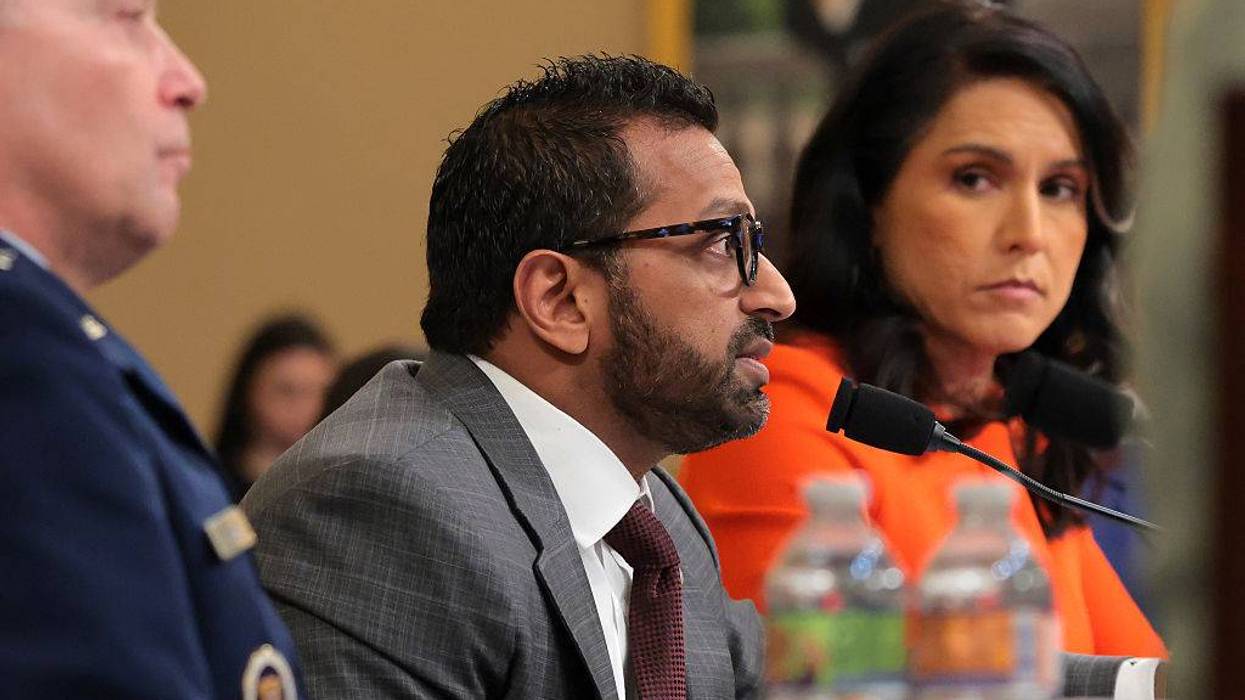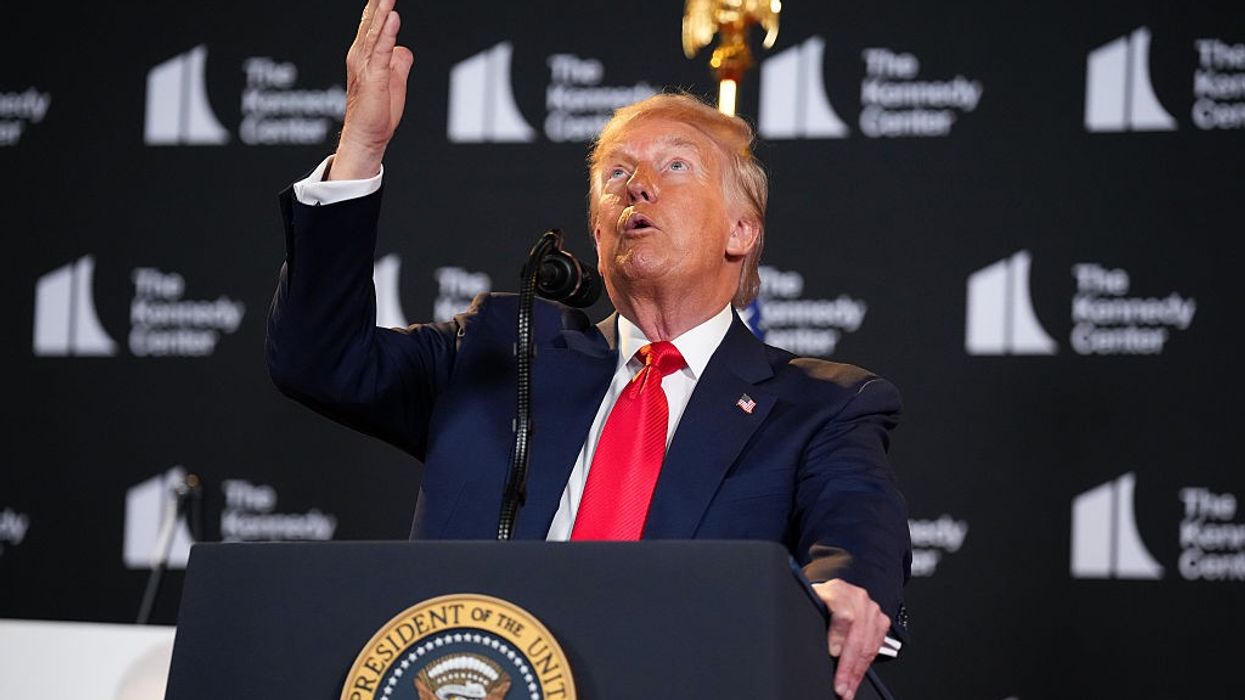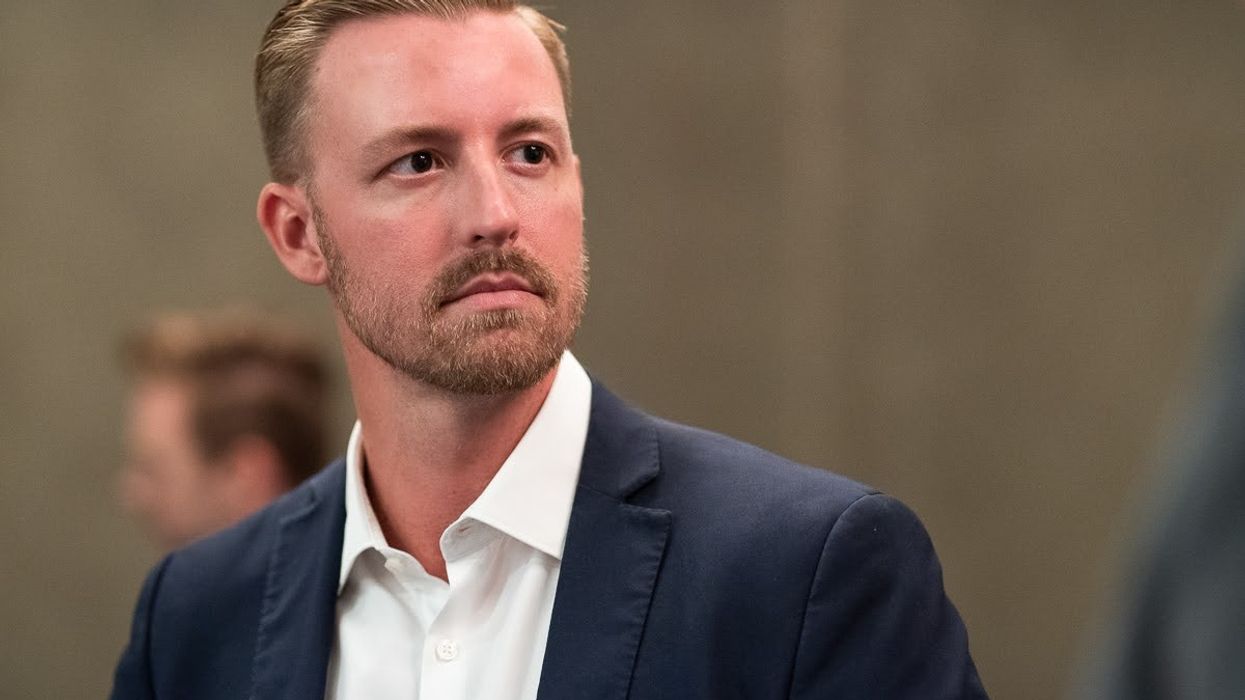'Beginning of the Chaos': FBI Raid in Georgia Seen as Ominous Sign of Trump Plans for 2026 Midterms
"This should have people across the country absolutely shook," said Sen. Jon Ossoff.
The FBI's Wednesday raid on an elections center in Fulton County, Georgia is raising alarms about President Donald Trump's plans to disrupt the 2026 midterm elections.
Shortly after FBI agents executed a search warrant at the Fulton County Election Hub and Operations center to search for materials related to the 2020 presidential election, Fulton County Commissioner Mo Ivory warned that this kind of operation would likely be spreading to other counties and states.
"Fulton County is right now the target, the only county right now fighting over an election that already happened," she said, referring to Trump's election loss that he has refused to concede more than five years after it happened. "But it is coming to a place near you. This is the beginning of the chaos of 2026 that is about to ensue."
Commissioner Mo Ivory: Fulton County is right now the target, the only county right now fighting over an election that already happened. But it is coming to a place near you. This is the beginning of the chaos of 2026 that is about to ensue. pic.twitter.com/0HvPMMoQO8
— Blue Georgia (@BlueATLGeorgia) January 28, 2026
In a Wednesday interview on MSNOW, Sen. Jon Ossoff (D-Ga.) described the raid on the elections center as a "seismic event" that should be a flashing red light for US voters.
"This should have people across the country absolutely shook," Ossoff said. "This is a huge deal. This is an FBI raid on the Fulton County Elections office. [Trump's] conspiracy theories about the 2020 election have been based in Georgia from the very start... this is a shot across the bow at the midterm elections. He tried to steal power when he lost it in 2020. We have to be prepared for all kinds of schemes and shenanigans."
Ossoff: "This is a seismic event. This should have people across the country absolutely shook. This is a huge deal. This is an FBI raid on the Fulton County Elections office ... This is a shot across the bow at the midterm elections. He tried to steal power when he lost it in… pic.twitter.com/vb8YwcP3Pa
— Aaron Rupar (@atrupar) January 29, 2026
Sen. Mark Warner (D-Va.) noted that US Director of National Intelligence Tulsi Gabbard was spotted at the elections center during the FBI raid, which he said was wholly unprecedented given that her job is supposed to be focused on foreign national security threats.
Warner then posited two explanations for her presence on the ground in Fulton County.
"Director Gabbard believes there was a legitimate foreign intelligence nexus," Warner wrote in a social media post, "in which case she is in clear violation of her obligation under the law to keep the intelligence committees 'fully and currently informed' of relevant national security concerns."
The other option, said Warner, is that Gabbard "is once again demonstrating her utter lack of fitness for the office that she holds by injecting the nonpartisan intelligence community she is supposed to be leading into a domestic political stunt designed to legitimize conspiracy theories that undermine our democracy."
ProPublica published a report on Thursday that dove into the specifics of the search warrant executed at the Fulton County election center that allowed federal agents to seize 2020 election ballots, tabulator tapes, digital data, and voter rolls.
Rick Hasen, a law professor at the University of California, Los Angeles, told ProPublica that he has never seen a search warrant of this nature.
"The idea that federal officials would seize ballots in an attempt to prove fraud is especially dangerous in this context," said Hasen, "when we know there is no fraud because the Georgia 2020 election has been extensively counted, recounted, and investigated."
Derek Clinger, a senior counsel at the State Democracy Research Initiative, an institute at the University of Wisconsin Law School, told ProPublica that the sweeping search warrant marked "a dramatic escalation in the Trump administration’s efforts to expand federal control over our country’s historically state-run election infrastructure."


